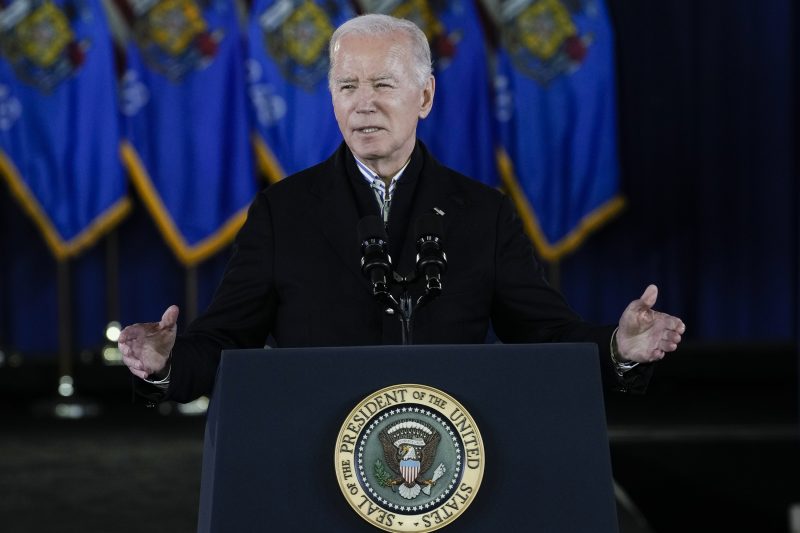Federal employees will receive pay raises averaging 5.2 percent — more in some high-salary areas — under an order President Biden signed Thursday that delivers the biggest increase to U.S. government workers since the Carter administration.
The salary hike for the federal civilian workforce of close to 2.2 million people is the heftiest since a 9.1 percent average raise in 1980. It’s 0.6 percentage points higher than last year’s increase, which itself was the highest in two decades, and will take effect in the first full pay period of 2024, starting Jan. 14 for most federal employees.
The military is set to receive a comparable increase in January in the $886 billion defense bill that Congress approved this month.
Biden’s executive order is the final step in the annual process of determining how much government workers will be paid the following year. That process has often featured a divisive debate in Congress over the value of federal workers and what they should earn compared to their private sector counterparts.
Republicans have long asserted that people employed by private companies are paid significantly less than federal workers. Democrats, who count the unions representing federal employees as key allies, point to studies concluding the opposite.
One such report — published in November by the Federal Salary Council, a group of government labor and management leaders — concluded that federal salaries on average lag 27.5 percent behind those of comparable private-sector jobs. Such studies have never settled the issue, however, as the debate often seems to reflect a broader philosophical clash over the role of government in American society.
Congress has in some years adjusted the annual White House proposal on federal pay up or down. But this year, after Biden proposed the 5.2 percent raise in March in his budget for fiscal 2024, Republicans in Congress — engulfed for months in a partisan battle over raising the country’s debt limit and then in an internal struggle over the House speakership — have been silent on the raise this year. Absent any action by Congress, the recommended raise goes into effect by default. Most lawmakers have already left Washington for the holidays, signaling the end of the legislative year and allowing Biden to finalize the pay hike with Thursday’s executive order.
Since about 85 percent of the federal workforce is outside the Washington region, “ … this pay increase will benefit families and lift economies in every single state,” Doreen Greenwald, national president of the National Treasury Employees Union, said in a statement. “Higher salaries are essential to keeping these skilled workers in the civil service and helping agencies recruit new employees to their valuable public service missions.” The NTEU represents employees in 35 federal agencies and offices.
The 5.2 percent increase is an average based on the employment cost index, a gauge of private-sector wage growth. The raise is split into two parts — 4.7 percent paid across the board, with the remainder varying according to the local salaries of comparable private-sector jobs.
Employees working in the Seattle-Tacoma area of Washington state will see the largest raise next year at 5.7 percent. Those in the Miami area will see the smallest at 4.94 percent. Employees in the Washington-Baltimore area — which encompasses those two cities plus most of Maryland and Northern Virginia, while also reaching into south-central Pennsylvania and eastern West Virginia — will see an increase of 5.31 percent.
More than 30,000 federal employees are receiving more of a boost to their paychecks because of recent changes to the locality pay system. Federal officials last year approved pay bumps for four new high-expense areas: Fresno-Madera-Hanford in California; Reno-Fernley in Nevada; Rochester-Batavia-Seneca Falls in New York; and Spokane-Spokane Valley-Coeur d’Alene in Washington and Idaho. Officials also added dozens of outlying counties to existing higher-pay areas around cities.
The generous raise is likely to continue the partnership that the Biden White House has forged with the unions representing federal workers. The administration has supported continued telework policies across most of the government that accelerated during the coronavirus pandemic, and hiring has intensified at many agencies.
Biden has also taken several steps to stamp out — and more recently, prevent — a policy ordered by former president Donald Trump that could have enabled him to fire tens of thousands of federal workers and replace them with loyalists.

